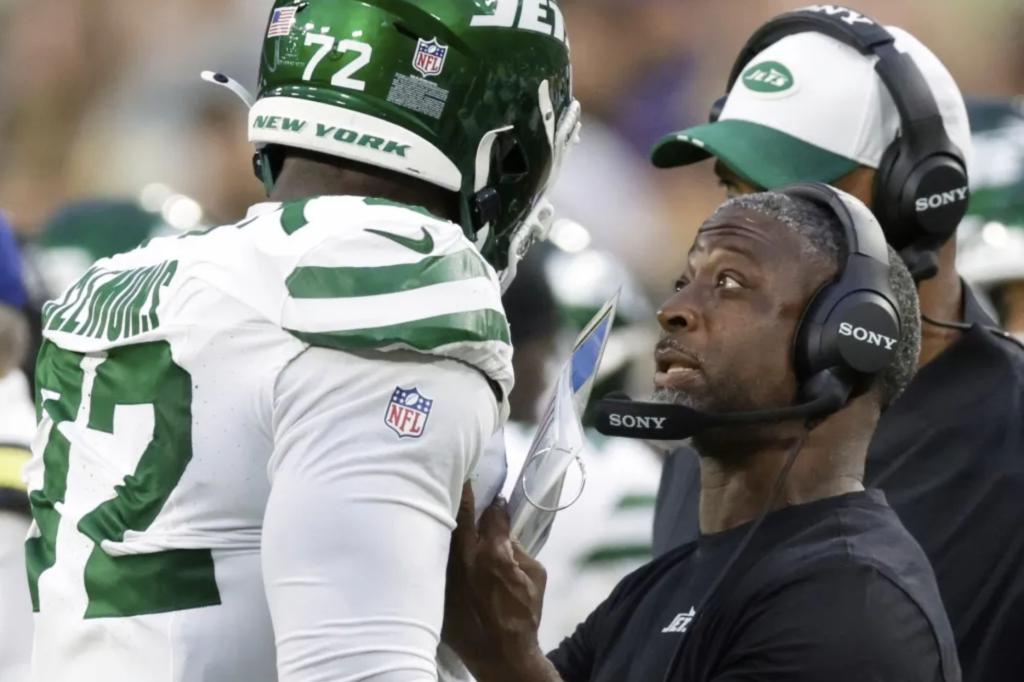MILWAUKEE — The Mets long game isn’t improving.
Kodai Senga continued the futility among Mets starting pitchers other than David Peterson to work deep into games with his latest middling performance Friday, when he lasted just 4 ¹/₃ innings against the Brewers.
The Mets, who used Reed Garrett as an opener in their 7-4 loss to the Brewers on Saturday night, haven’t had a starting pitcher other than Peterson complete six innings since Clay Holmes did it June 7.
In that regard, Senga, Holmes, Sean Manaea and Frankie Montas — who allowed three runs, one earned, after replacing Garrett who pitched a scoreless first inning — have underperformed.
That’s even as most of that group have managed to keep the Mets competitive, albeit while placing extra stress on the bullpen.
Worth noting: Senga and Manaea returned from the injured list within the past month and spent multiple starts stretching out at the major league level. And on other occasions, the decision to remove a starter early has been based on strategy, allowing for a certain matchup in a high leverage situation.
“But the point remains, we want those guys and are actively trying to figure out how to get those guys into the sixth or seventh inning every single time,” pitching coach Jeremy Hefner said Saturday.
The Mets entered play averaging five innings from their starting pitchers. Overall, that unit had logged 582 ¹/₃ innings, which ranked 24th in MLB. The Phillies, with their deep rotation headed by Zack Wheeler and Cristopher Sánchez, were No. 1 in the category at 659 innings.
Senga’s lack of progress working deep might be the most troubling.

Once regarded as the staff ace — can it reasonably be argued that anybody other than Peterson is worthy of the moniker? — Senga has completed even five innings only once in his five starts since returning from the strained right hamstring that cost him a month.
“I haven’t been able to get over that middle of the game hump,” Senga said through an interpreter after his outing Friday. “The pitch count isn’t rising, but also due to me not being as efficient and getting through those innings. Ideally, I would like to be more efficient, get through those innings and throw more pitches.”
Senga’s latest performance was a snapshot of the club’s middle-inning troubles.

He rolled into the fifth Friday before committing a fielding error and surrendering a homer to Brice Turang on the next pitch that tied the game.
Two walks and a catcher’s interference followed, with one out recorded, before Senga departed at 79 pitches with the bases loaded. The go-ahead run scored when Brooks Raley plunked Isaac Collins.
“Some of it is self-inflicted, but the truth is we can be better,” Hefner said. “I think that’s the right thing to say. Just because they had a lower pitch count and you can give reasons for why [a starter] didn’t go six innings doesn’t mean we shouldn’t try to and hold ourselves accountable to the things we can do to fix it.”
Manaea, in his start last week against Cleveland, appeared on course to survive at least six innings. The left-hander rolled into the sixth in a scoreless game but recorded just two outs before he was removed. He allowed five runs in the inning.
Hefner pointed to April and May, when the Mets were getting short outings from starters but still having success as an example that length from the rotation isn’t necessary. But, he also knows it would help.
“We are going to run our bullpen into the ground if we don’t find a way to get through that third time in the batting order, navigating the fourth, fifth and sixth innings,” Hefner said. “So, it’s controlling what we can control. Attacking the strike zone and let the other eight guys help out.”
<




